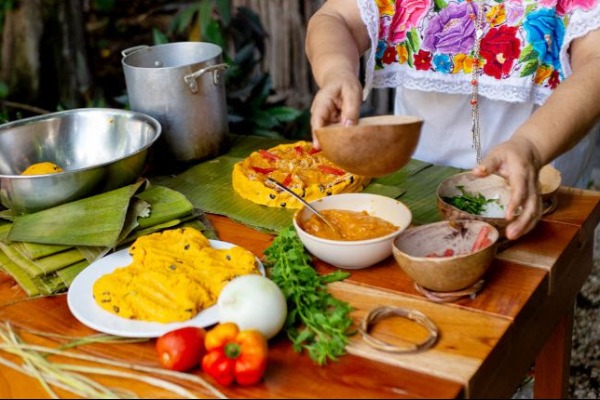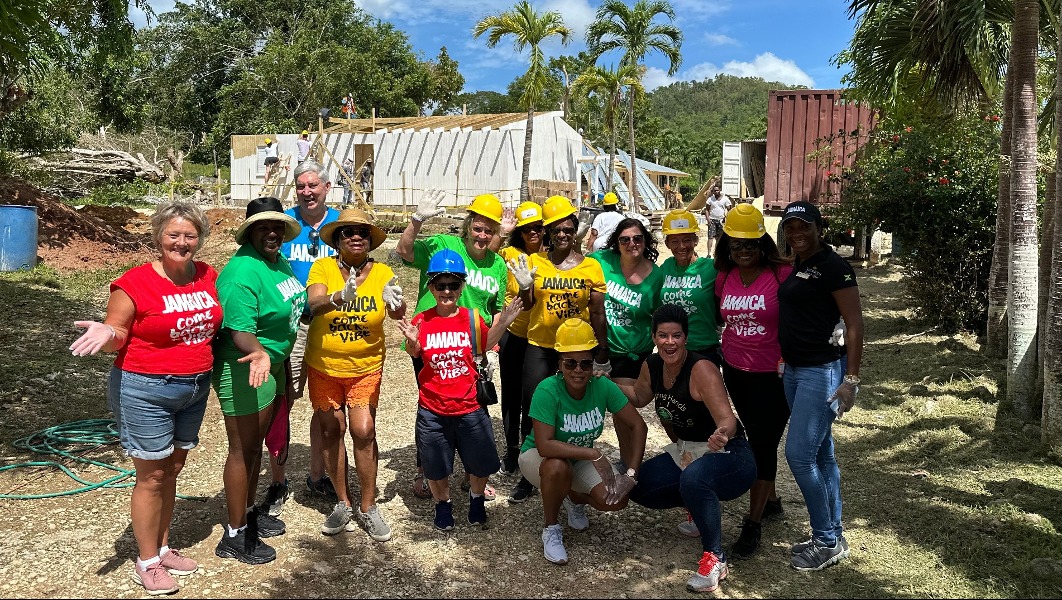A Taste Of The Yucatan

Yucatan’s Ministry of Tourism (SEFOTUR) is launching a new campaign aiming to increase awareness of the state’s culinary offering, rich cultural history, and current modern gastronomy as an important part of its tourism offering.
And it will position the state as one of Mexico’s foodie destinations to expand tourism to all regions of the state and develop new products.
The campaign begins on June 18, the World Day of Sustainable Gastronomy, and promoting under the hashtag #YucatanIsFlavor, it highlights the recipes, ingredients, and gastronomic experiences of the Yucatan.
Michelle Fridman, Minister of Tourism, said: “The Year of Yucatecan Gastronomy” places our food as part of the axis of our promotional campaign. The Yucatan’s history goes back to the big bang and forward to the Maya to today. There is no better way to narrate the identity and history of Yucatan than in its flavors and gastronomy.”
Yucatán gastronomy is culturally rich in traditions that bring together Maya, Spanish, Caribbean, Dutch, and Lebanese influences. It mixes ingredients such as corn, tomato, honey, and beans, with endemic products such as habanero chili, sour orange, and the popular Achiote, used to create a red paste called recado that is used in tamales and over proteins, most popularly wild turkey and pig.
Some of the more traditional dishes of the state of Yucatan include Sopa de Lima (chicken broth seasoned with local Yucatecan lime), Huevos Motuleños (tortilla with beans and fried eggs), and the Cochinita Pibil (pork marinated in Achiote paste and sour orange juice and cooked in an underground pit). Visitors to the state will find these dishes served at posh haciendas converted into restaurants or hotels, others may take a meal in the home of the living Maya while visiting the southern part of the state and the PUUC route.
Modern Yucatan offers of one Mexico’s trendiest foodie scenes spanning across its six regions and including rooftop dining in Valladolid, beach clubs in Progreso and Mezcal tastings in the yellow city of Izamal. Its capital, Merida, is home to traditional cantinas, modern restaurants, and mixologists.
As part of “the Year of Yucatecan Gastronomy” campaign, SEFOTUR will make special alliances. Beginning with commitments the state, to work with the many municipalities to promote their own culinary offerings to state-wide initiatives to fund and promote events such as Restaurant Week, the first-time editions of festivals promoting its honey, tacos and recados. The ministry will also work with local chefs as “Gastronomic Ambassadors of Yucatan” to further promote the campaign across platforms. International organizations like the UNWTO, the Gastronomic Tourism Laboratory (IICA), and the Aspen Institute will also be tapped to join the initiative.
“Gastronomic tourism has a very strong element of sustainability, like the actions we have taken efforts in, it is an exertion that seeks to include, diversify, decentralize… that seeks the endemic, the organic, the authentic, being a very noble segment, and in Yucatan, we have a great diversity of ingredients and dishes, we have a gastronomic narrative that few destinations in the world have, from Mayan techniques and ingredients and the different migrations to the footsteps of other cultures in the region”.
She added that this type of tourism will allow, in the year of economic recovery, to bring benefits to the communities that need it the most, since in these areas is where many of the ingredients and supplies that are consumed in the restaurants are produced.
The Yucatan is Flavor campaign follows the ministry’s 365 Days of Yucatan campaign which took place between 2021 and 2022 during which time 365 tourism products were promoted to local, national, and international visitors, many developed in an effort to increase tourism.


